Several hundred people gathered for the opening ceremony of the Áron Márton Visitor and Pilgrim Center in Csíkszentdomokos (Sândominic), the native village of the famous Szekler Bishop Áron Márton (1896-1980) on Saturday morning, the 125th anniversary of his birth. The visitor center was built between 2016 and 2021 by the Hungarian government, Hargita (Harghita) County Council and civilian contributions. (via maszol.ro and szekelyhon.ro)
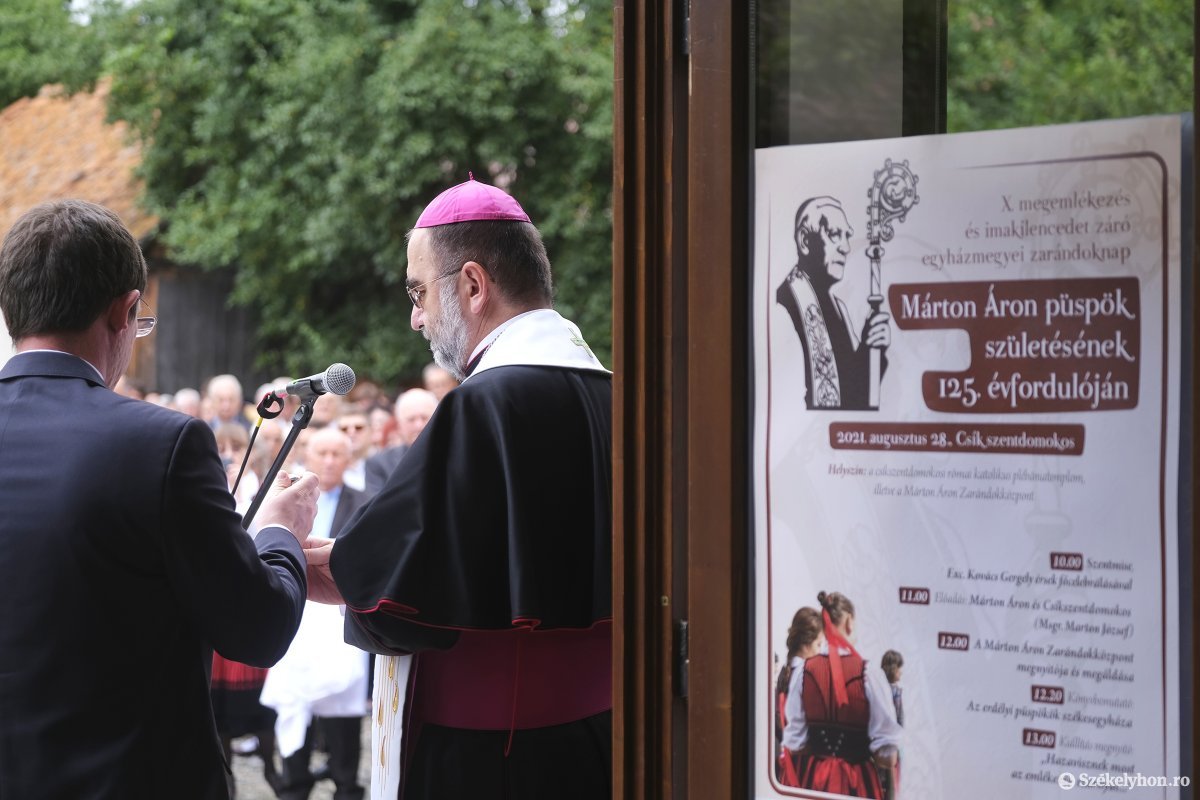
“It is not enough to only keep his memory alive; everyone must personally relate to his legacy.”
– said the Roman Catholic Archbishop of Gyulafehérvár (Alba-Iulia), Gergely Kovács, to the people gathered for the holy mass before the opening ceremony. He added that those present were gifts too, just like the visitor center itself and the exhibition and the book launch inside, because these all prove that people still believe in Áron Márton’s teaching and that they are hoping his canonization will come true.
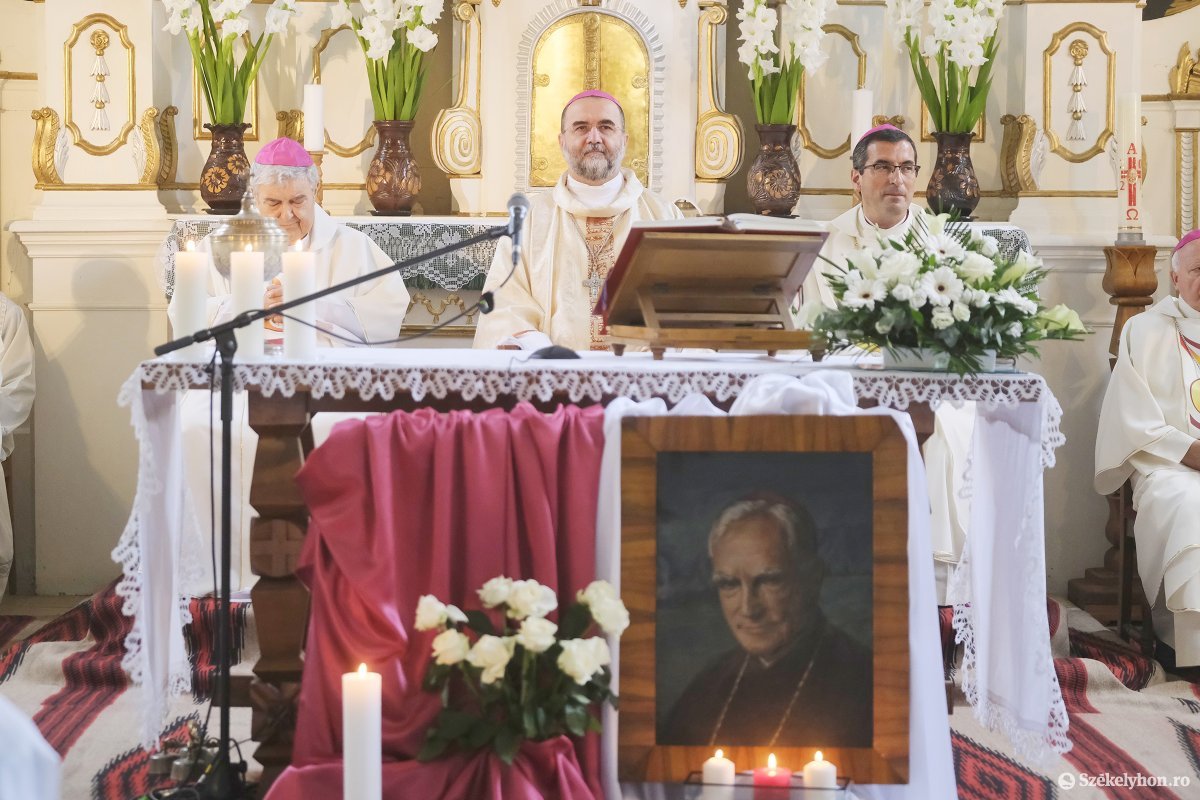
After the holy mass and a detailed presentation about the bishop’s life by university professor and provost József Marton, people walked over from the church to the pilgrim center for the opening ceremony.
The Hungarian government was represented by Réka Brendus, the Deputy Head of the State Secretariat for Hungarian Communities Abroad at the Prime Minister’s Office. She said in her speech that Áron Márton’s life was outstanding because he was able to show to the world that real values can survive even the darkest times, but future generations also have to learn that freedom and justice are not self-evident. According to her Áron Márton not only showed what real values are but also that it is worth fighting for them.
“He has already been gone for 41 years, but he has stayed with us for 125 years.”
– said Réka Brendus.
Mayor of Csíkszentdomokos Róbert Karda admitted in his speech that during the construction, there were times when finishing the pilgrim center became doubtful, but there were always some politicians, church leaders or good-hearted civilians who were committed to the cause.
This alliance is a testimony that Áron Márton still inspires a lot of people even today.
– the mayor said.
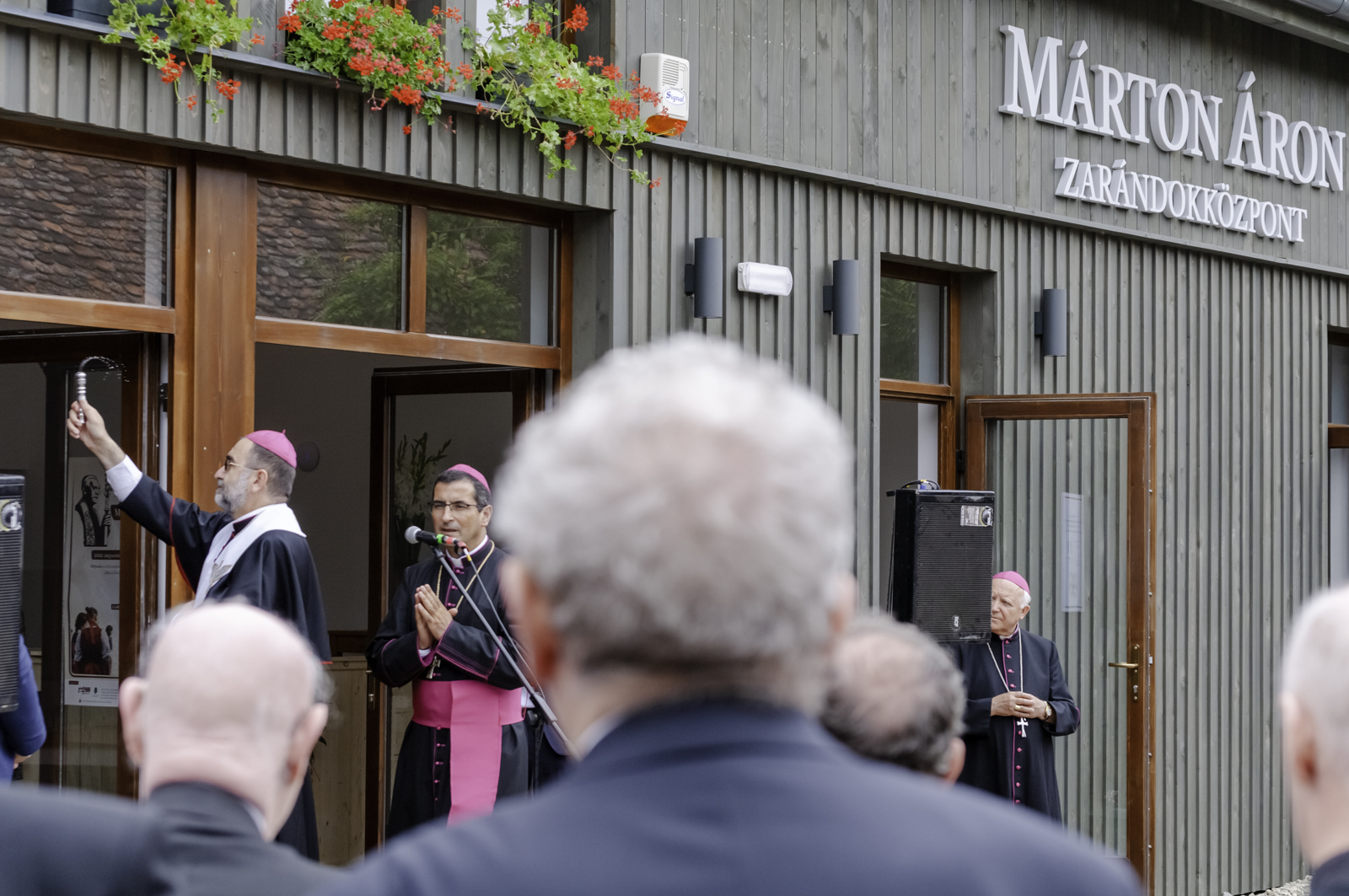
At the opening ceremony, other Transylvanian Hungarian politicians were also present, like Minister of Environment, Water and Forestry Barna Tánczos; President of the Democratic Alliance of Hungarians in Romania (known by its Hungarian acronym of RMDSZ) and Deputy Prime Minister of Romania Hunor Kelemen; and President of the Hargita County Council Csaba Borboly.
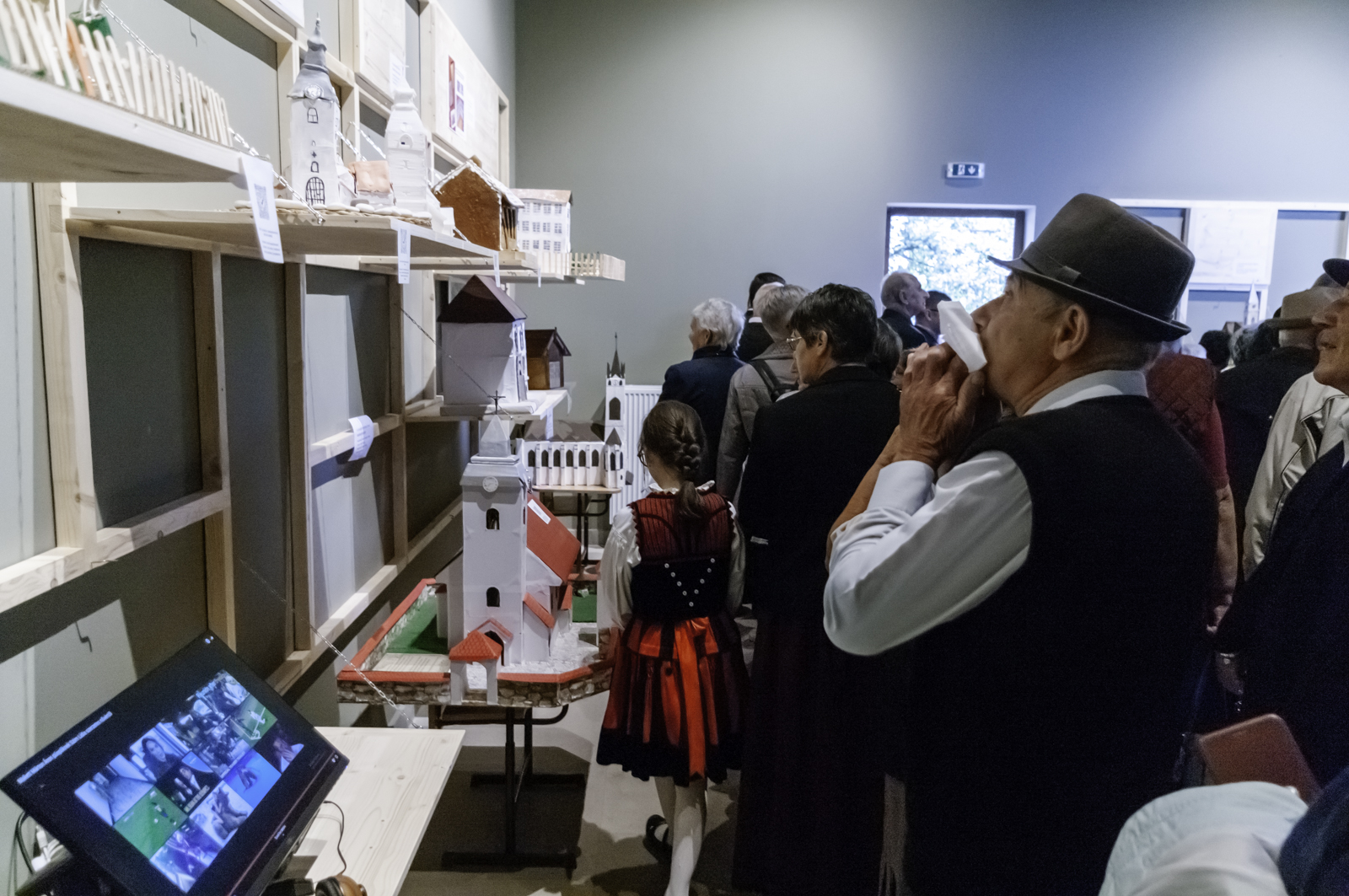
“Non recuso Laborem” (I do not refuse work/hardship) was the motto Áron Márton chose when he was ordained bishop on February 12, 1939, in Kolozsvár, and he never failed to live by the true meaning of this phrase.
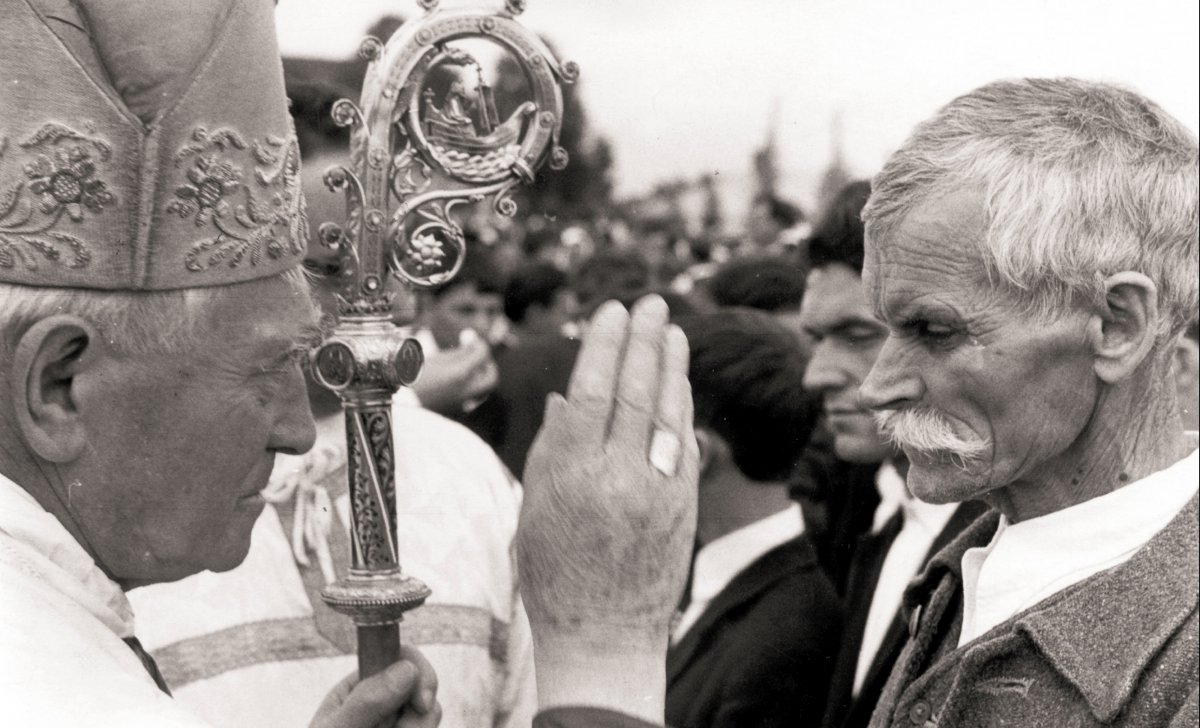
Áron Márton was born into a religious Szekler family of farmers on August 28, 1896, in Csíkszentdomokos. In 1920, he applied for admission to the Roman Catholic seminary of Gyulafehérvár and was ordained a priest on July 6, 1924. After serving in various functions, in 1932, he was sent to Kolozsvár (Cluj-Napoca) and appointed the parish priest; there, he became a true spiritual leader to the university students and the entire Catholic community. He was ordained bishop on February 12, 1939.
Bishop Márton Áron was a true human rights activist, standing up against all the unjust and inhumane practices that trampled on the dignity of many. He used his function and every possibility to safeguard the ethnic Hungarian community from the various authoritarian measures meant to curtail its rights.
After World War II, Romanian communists made every effort to destroy faith in God and limit the rights of ethnic minorities. In 1949, the bishop was trapped and arrested by the Romanian Secret Service and spent two years in various prisons. He was put on trial in 1951 and sentenced to life imprisonment, but due to various diplomatic interventions, he was released in 1955.
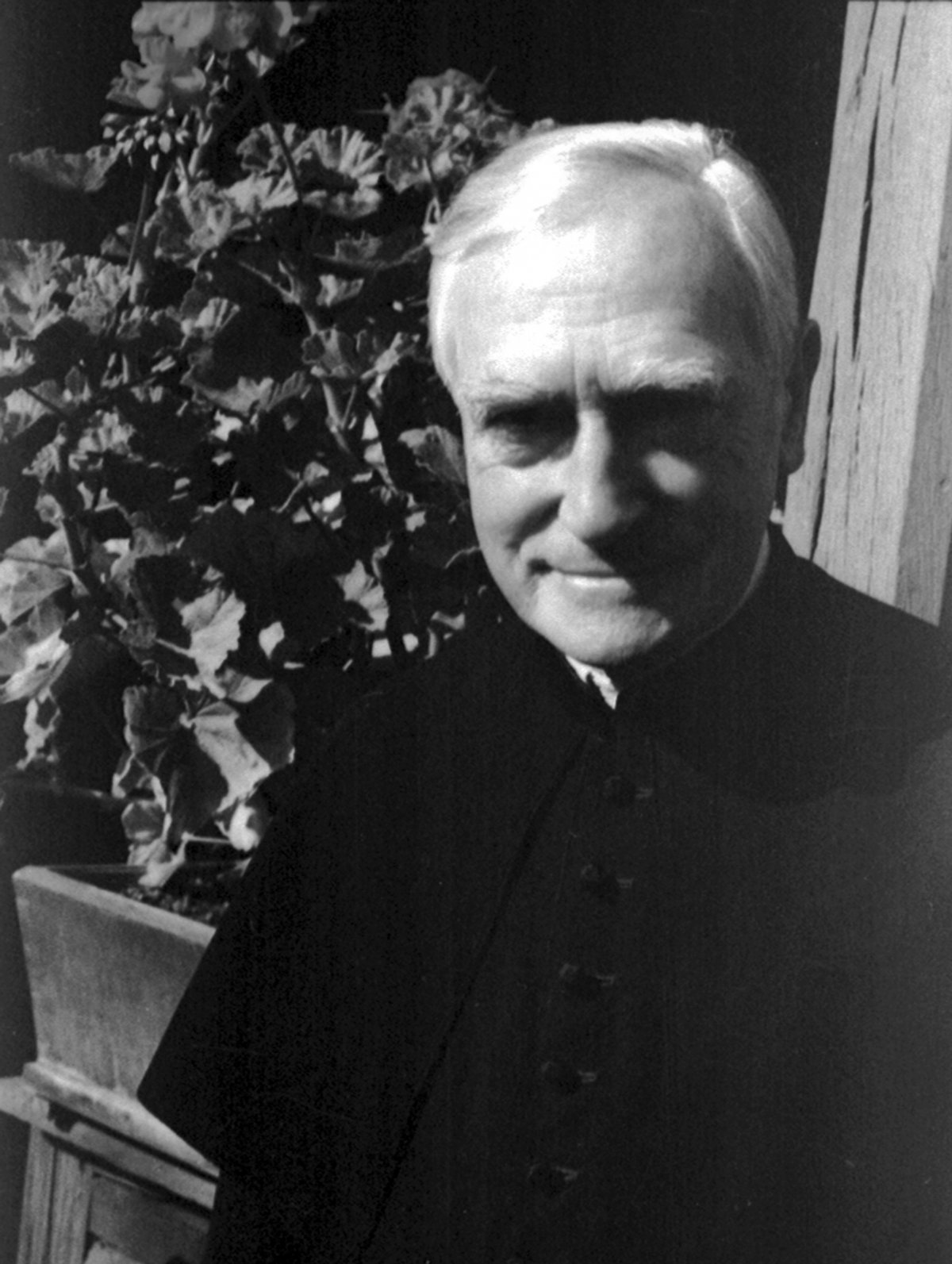
Nevertheless, in 1957, communist authorities placed him under house arrest for 11 years. Finally in 1968, when his presence at various diplomatic events became necessary, as he was the only Hungarian Roman Catholic Bishop in Romania, he managed to get out of house arrest. He even traveled to Rome several times and met Pope Paul VI.
At the beginning of the 1970s, he was diagnosed with cancer, which he bore with remarkable endurance. He passed away on September 29, 1980, and was buried in the crypt of the Gyulafehérvár Cathedral. His process of canonization was initiated in 1992.
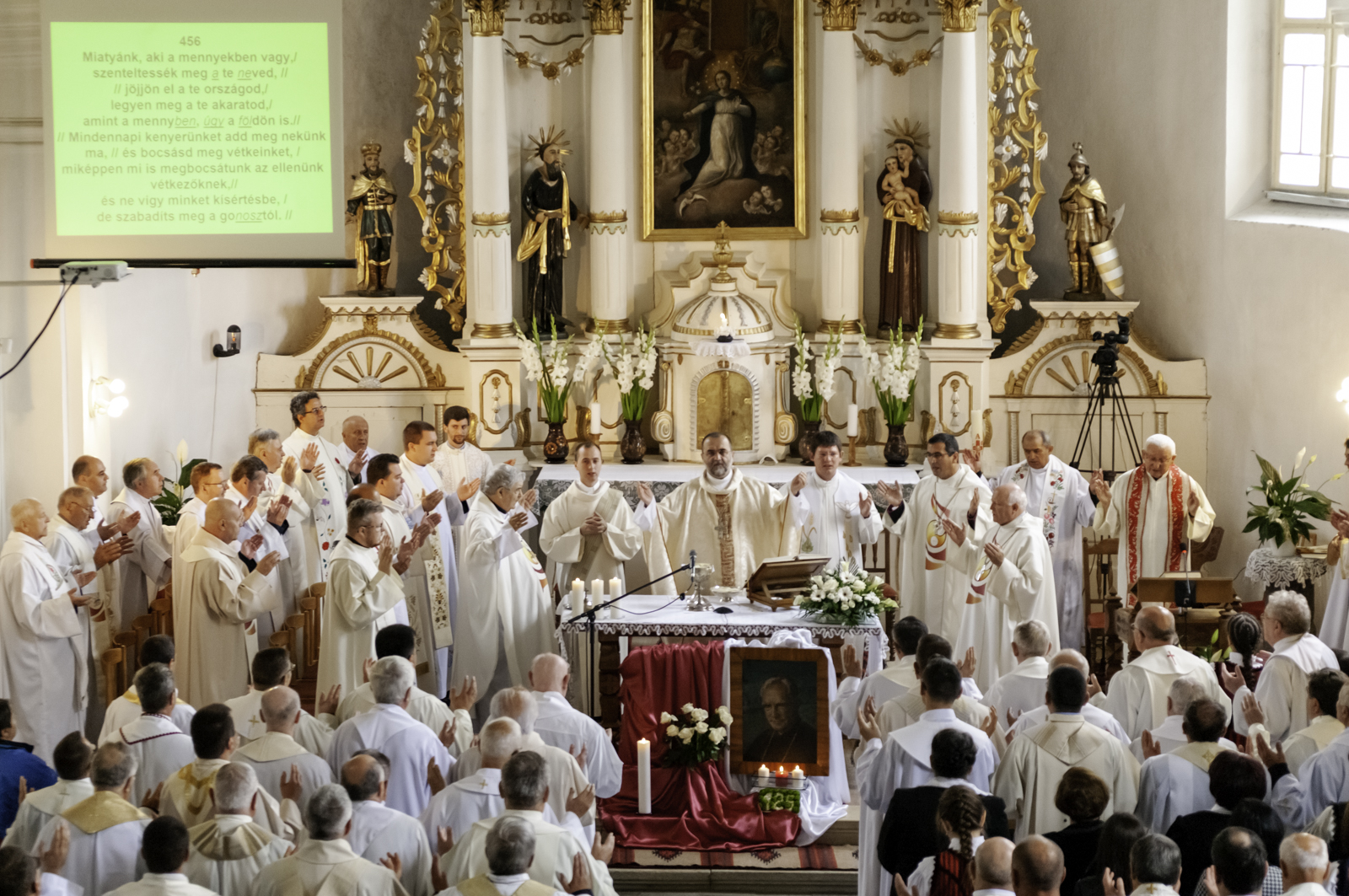
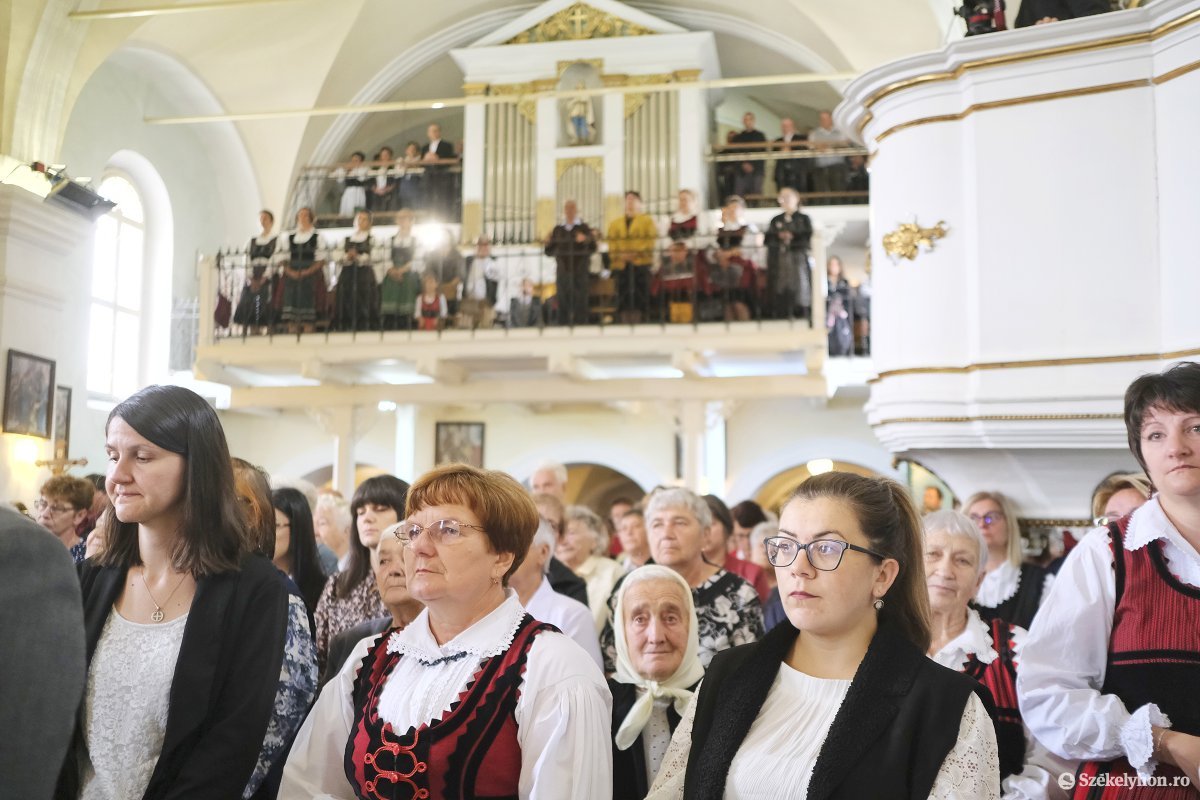
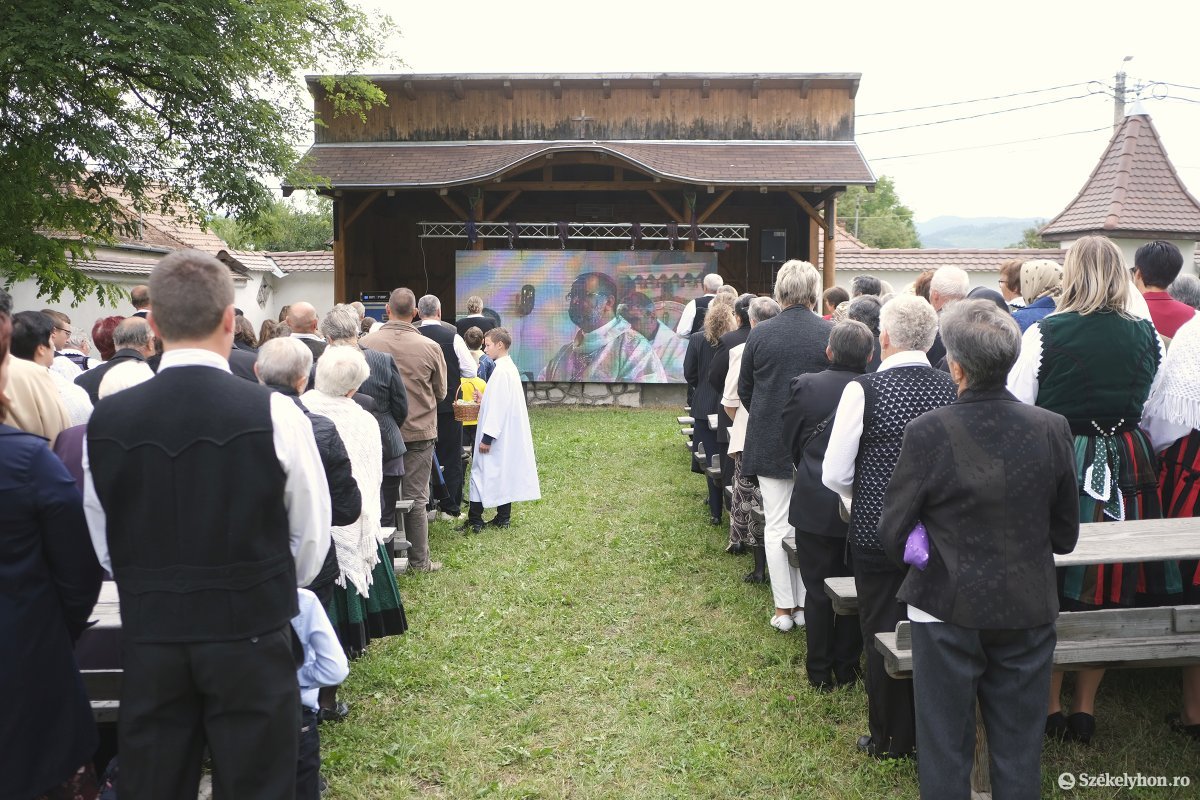
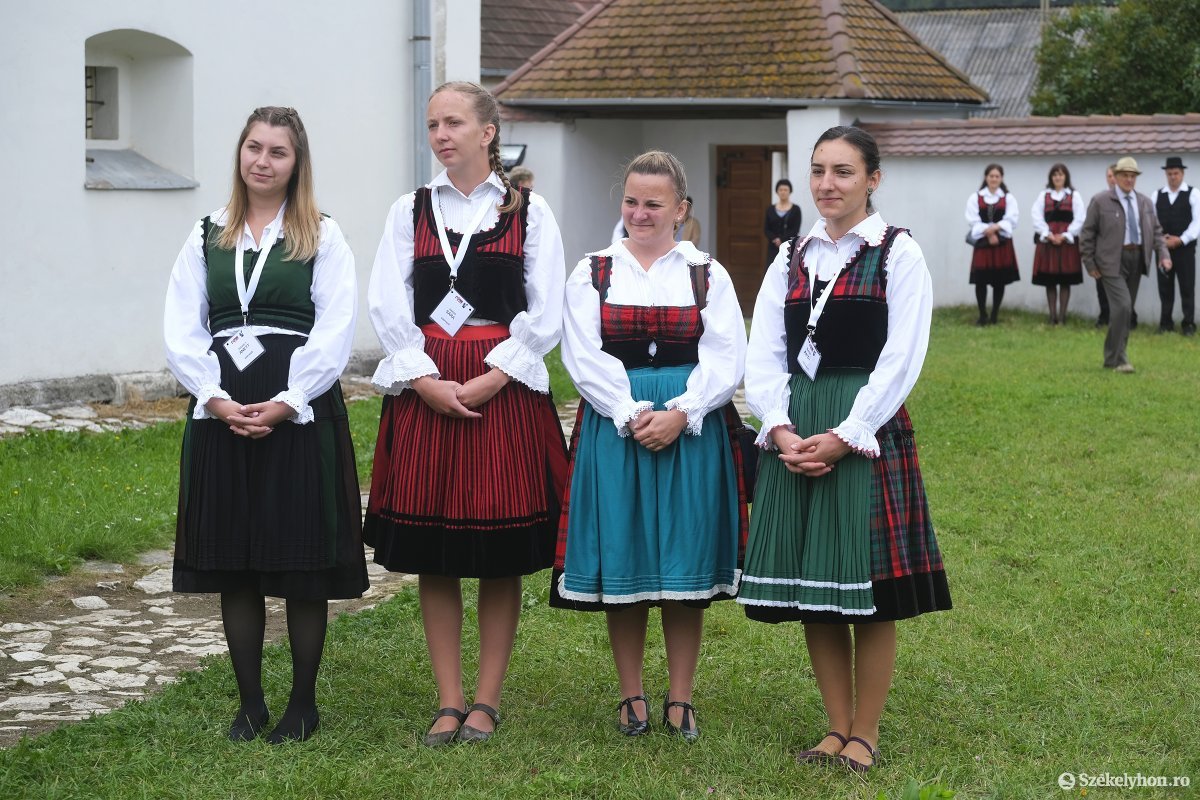
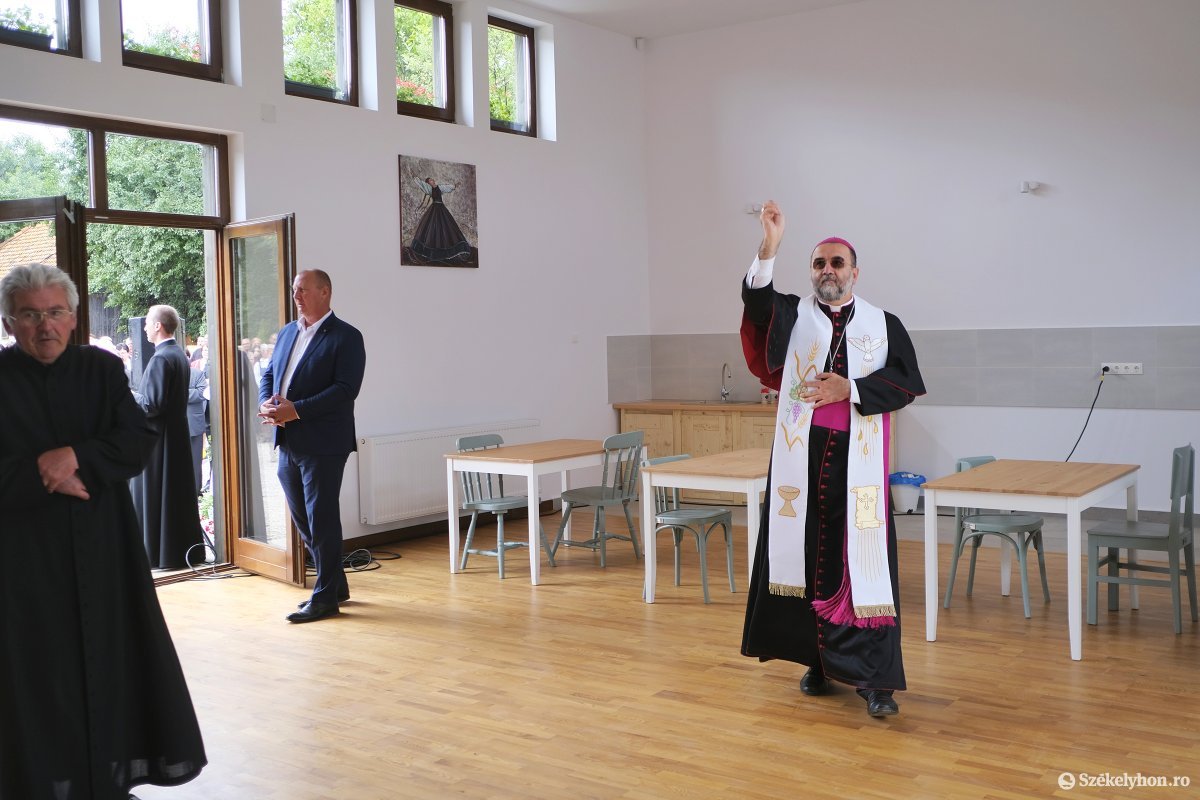
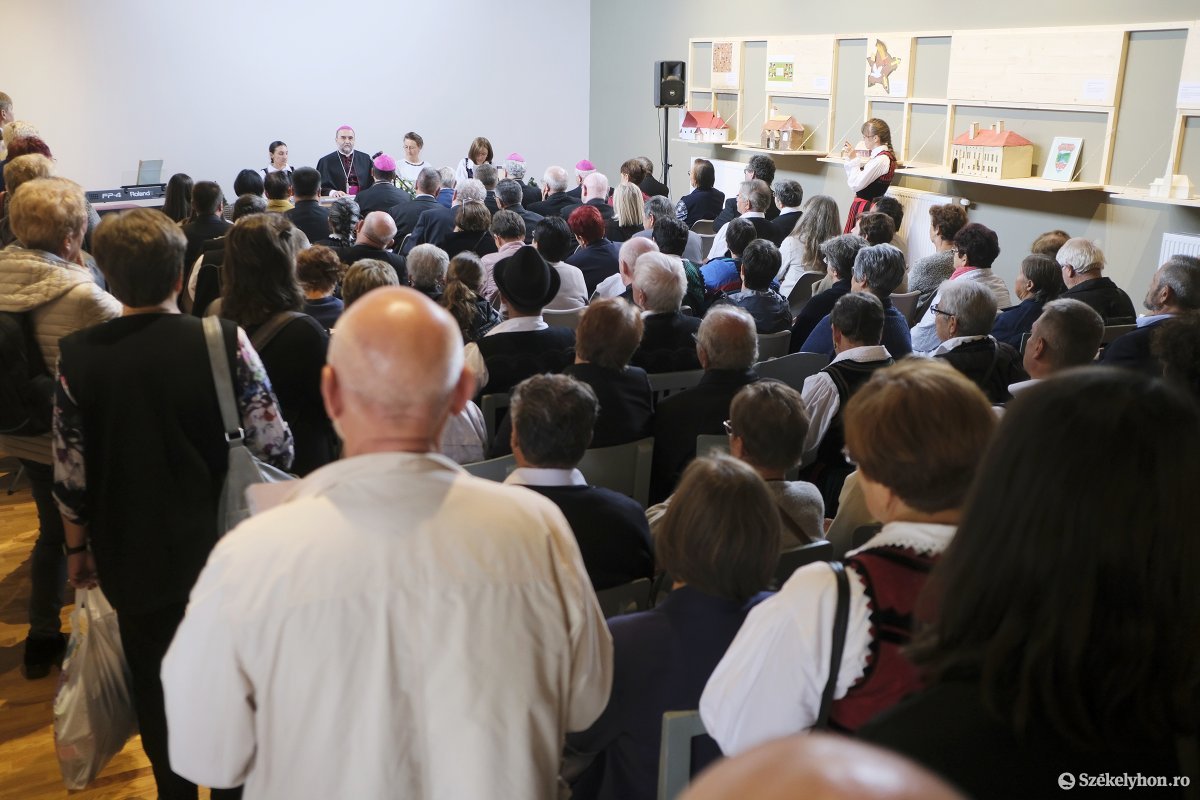
Title image: Áron Márton Pilgrim Center opening ceremony in the Szekler bishop’s native village, Csíkszentdomokos, on August 28, 2021. (Photo Nándor Veres/szekelyhon.ro)